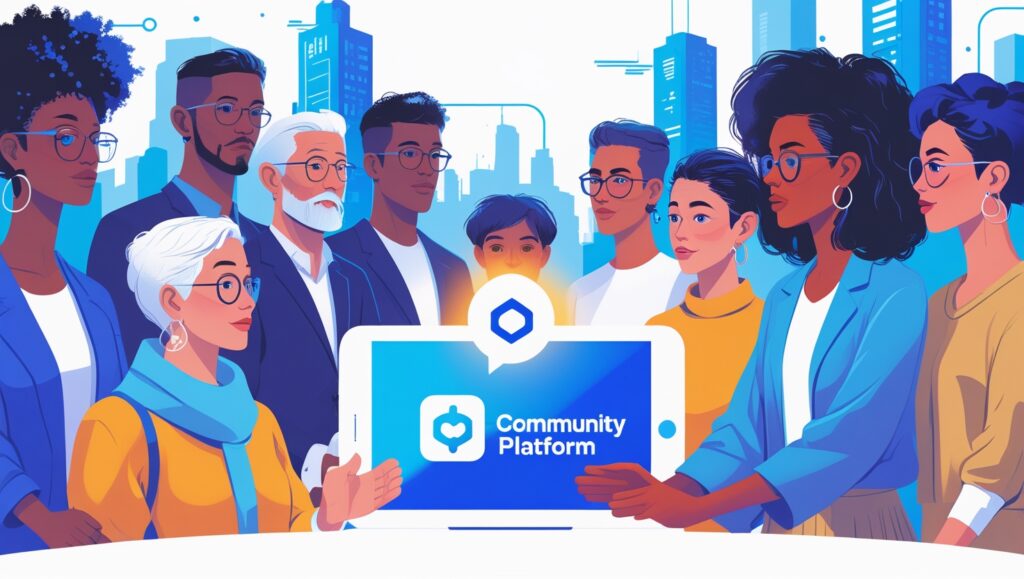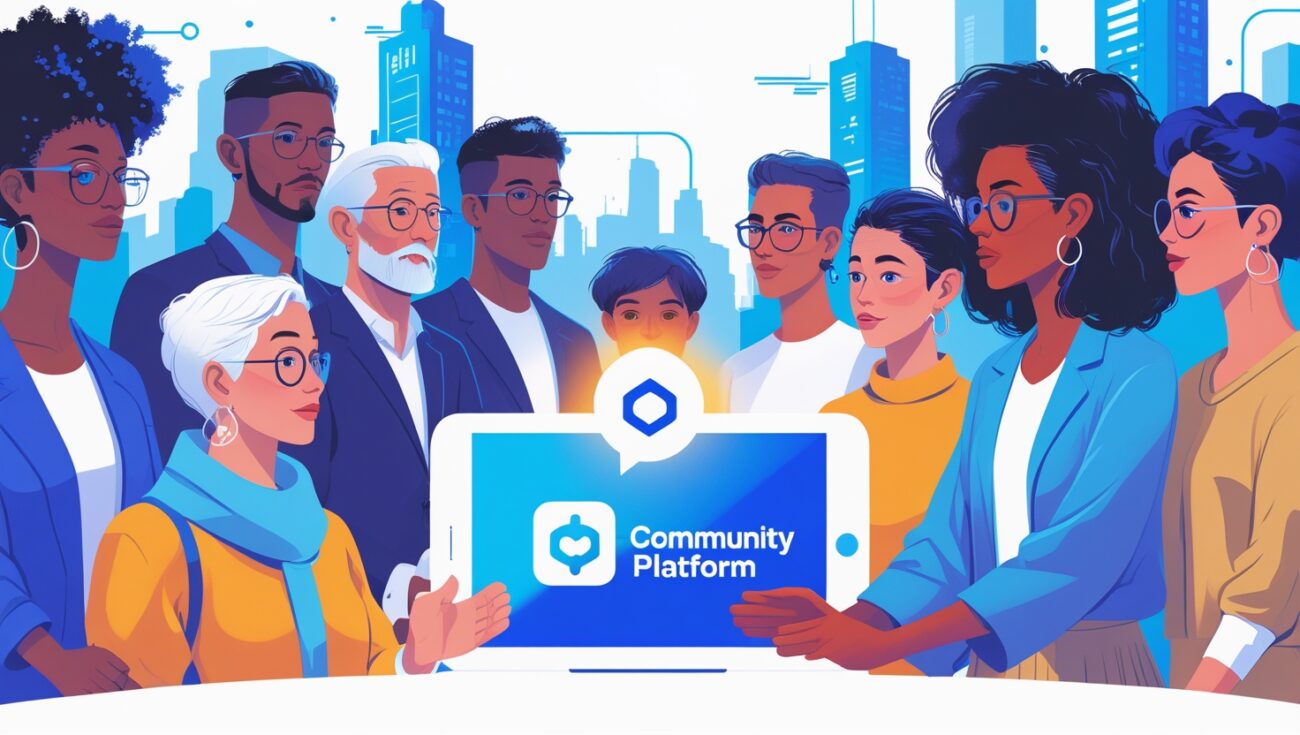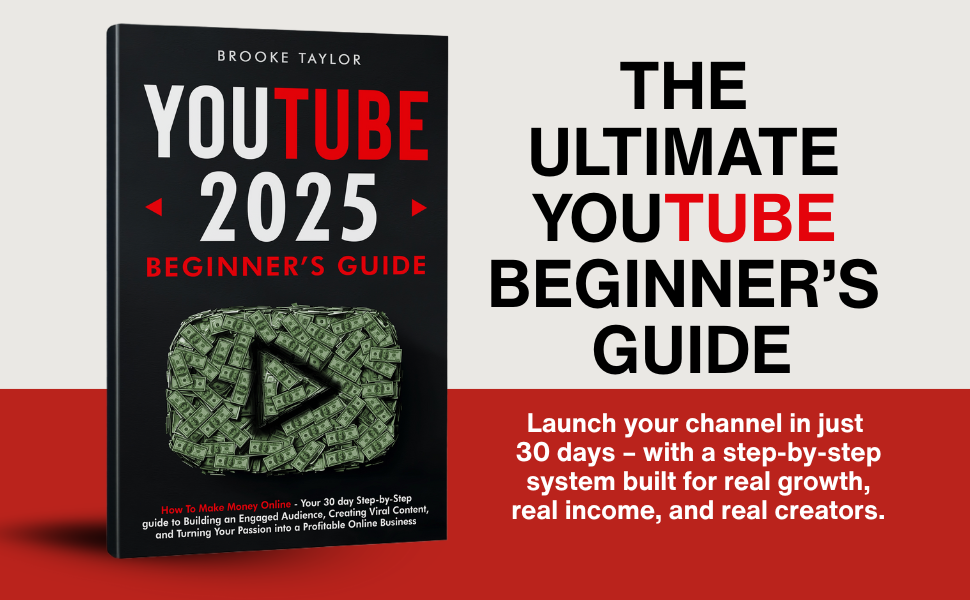Why Community Is the Future of Online Business in 2025
When I first started my online business, I focused heavily on selling products and services. But over time, I realized that true growth and sustainability didn’t come from one-off sales—it came from building community.
In 2025, community isn’t just a buzzword. It’s becoming the foundation of successful online businesses. Whether you’re a coach, creator, or entrepreneur, building a community can help you grow faster, create recurring revenue, and serve your audience better than ever before.

Table of Contents
Customers Want More Connection
Social media has made it easier than ever to reach people, but it’s also made it harder to truly connect. Algorithms change constantly, and followers can disappear overnight.
Communities, on the other hand, give you direct access to your audience. You own the space, and you can build real relationships with members without worrying about whether your content will be seen.
Community Builds Loyalty and Trust
When people feel like they belong, they stay longer. A thriving community builds loyalty because members are connected not just to you, but to each other.
This leads to higher retention rates, more referrals, and stronger brand advocacy. In other words, your customers become your biggest fans and marketers.
Community Drives Recurring Revenue
One-off sales can be unpredictable, but communities allow you to create recurring income online. Whether through memberships, subscriptions, or group programs, a strong community model gives you consistent revenue every month.
This stability allows you to focus on delivering value instead of constantly chasing new customers.
Platforms Are Making It Easier
In 2025, there are more tools than ever to help you build community. Platforms like Skool combine courses, community, and payments into one simple dashboard.
This makes it easy to grow your audience, engage members, and monetize your expertise without complicated tech.
Community Creates Better Results
People are more likely to succeed when they’re surrounded by others with similar goals. Communities foster accountability, encouragement, and peer-to-peer learning.
When your customers get better results, they stick around longer and tell others about your business.
Ready to Build Your Community?
Community is more than a trend—it’s the future of online business. If you want to grow sustainably in 2025 and beyond, start building a space where your audience feels connected and supported.
Click here to create your Skool account and launch your community the simple way.
One of the biggest reasons community is the future of online business is that it creates stability. Relying on social media platforms or ad campaigns can feel like a rollercoaster. One algorithm change or increased ad cost can wipe out your visibility overnight. Communities give you direct control over your audience and revenue.
Another advantage of building a community is that it makes your business more valuable. When members are deeply connected and actively engaged, they’re less likely to leave. This not only improves retention but also makes your brand harder to replicate.
I also discovered that communities reduce the pressure to constantly launch new products. Instead of selling to strangers every month, you can focus on nurturing your existing members. When you take care of the people already in your ecosystem, they’ll stay longer and spend more.
Communities are also powerful because they encourage members to contribute. Instead of your business being a one-way broadcast, you create a two-way conversation. This peer-to-peer interaction adds incredible value without requiring you to be online all the time.
Another reason communities thrive is because they build deeper relationships. When your customers feel like they know you and the other members, they trust your recommendations more. This makes it easier to sell future offers and grow your business organically.
Platforms like Skool are designed to make engagement easy. With features like leaderboards, points, and notifications, members are motivated to log in and participate. This built-in gamification keeps your community active, which improves retention.
Communities also allow you to deliver more personalized support. Instead of answering the same questions repeatedly in private emails, you can respond publicly in the group. This saves you time and helps other members who have the same question.
Another huge benefit is that communities generate more referrals. When members are proud to be part of your space, they naturally invite friends and colleagues. This word-of-mouth growth is one of the most cost-effective ways to scale your business.
Communities are also a great way to test new ideas. You can poll your members, ask for feedback, and launch beta versions of new products. This ensures that your offers align with what your audience actually wants.
I’ve found that communities increase the lifetime value of each customer. Because members are paying you monthly or annually, the revenue adds up. This recurring income allows you to invest back into your business with confidence.
Another reason communities are so effective is because they provide a sense of belonging. In an increasingly digital world, people are craving real connection. When your community fulfills that need, it becomes irreplaceable.
Finally, communities allow you to focus on impact instead of just income. You can watch members transform, support each other, and achieve results. This level of fulfillment is something you won’t find in one-off product sales.
One of the best parts about building a community is that it helps you stand out in a crowded market. Many businesses are still focused on transactional sales, so offering a space where people feel seen and supported sets you apart.
Communities also give you valuable insights into your audience. By observing conversations and asking questions, you can better understand their struggles and desires. This information helps you create products and services that truly resonate.
Lastly, communities make your business more resilient. Even if the market changes, your community remains a steady foundation. When people feel connected to you and each other, they’ll stay loyal through ups and downs.







I wanted to thank you for this great read!! I definitely enjoying every little bit of it I have you bookmarked to check out new stuff you post…